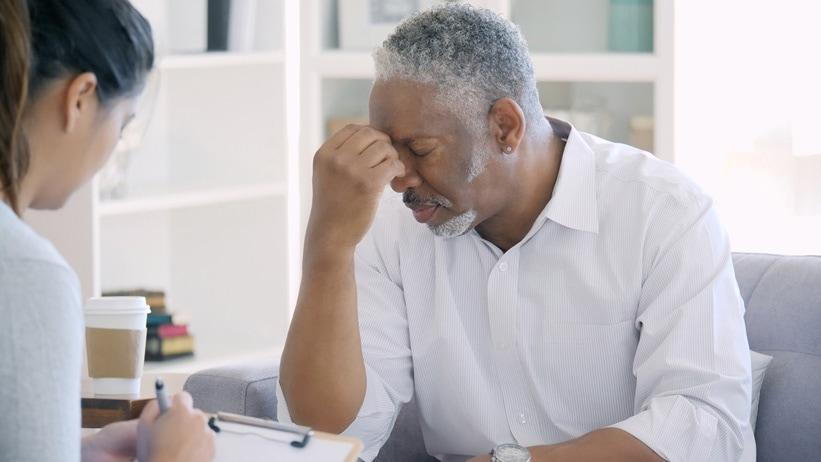
African Americans make up 13.3% of the US population. About 27% of African Americans live below the poverty level compared to about 10.8% of non-Hispanic whites (www.psychiatry.org). Approximately 30% of African American households are headed by a woman with no husband present, compared with about 9% of white households (www.psychiatry.org). With these statistics, there are various health challenges that are inherent to this community. For example, Approximately 11% of African Americans are not covered by health insurance, compared with about 7% for non-Hispanic whites (www.psychiatry.org). Death rate for African Americans is higher than whites for heart diseases, stroke, cancer, asthma, influenza and pneumonia, diabetes, HIV/AIDS, and homicide (www.psychiatry.org). In light national suicide awareness month, we here at Zenith Mental Health would like to take a moment to discuss the epidemic of depression in the African American community. Although, depression affects a diverse range of nationalities, we would like to address specific problems in the African American community. When the term depression comes up, many different ideas may come comes to mind. So often in the black community, when a friend or family member is depressed, we tend to assume that the individual is just sad and a bit overly dramatic. Unfortunately depression is generally misconstrued as a mood rather than a mental illness. Depressed people are often told to just think positively or to “get over it. But is it just that simple? Lets take a moment to examine what depression really is and how it manifests in the African American community.
What is depression?
Clinically, depression is characterized as a mood disorder that causes a persistent feeling of sadness or loss of interest caused by an imbalance in the brain’s neurotransmitters (serotonin, dopamine, GABA). It affects roughly 17 million American adults and is currently one of the most commonly diagnosed mental disorders. It is truly an epidemic here in the United States, and many cases go undiagnosed and untreated. Though there are factors that may predispose an individual to suffering from this mental illness, no one is immune. In the African American community, depression may manifest as physiological symptoms, such as a headache or a stomach ache.
Risk Factors in the African American Community
Though the root cause of depression does tend to be biological, there are a variety of environmental factors that impact African American People in a unique way. First and foremost, we must address the stigma of mental illness in the African American Community. Growing up Black, many of us were taught that mental illness was a term reserved for “crazy folks” or it was a “white people thing”. We were often told to pray about it and get over it. After all,“there’s children starving in Africa!” right? Unfortunately as we matured and experienced a bit more of life, many of us have come to realize that while prayer and perseverance are wonderful, sometimes it’s a bit deeper than that. Sadly, many of us were not given to tools to truly tackle depression and mental illness, due to this nasty stigma in our community. Thus, we continue to suffer. The second major piece of this puzzle is the African American Communities distrust for the healthcare system. Lets face it, in general, African American People do not like going to the doctor. As a matter of fact we’re not too fond of dentists either and the idea of seeing a mental health professional is almost laughable in many circles. Sadly, many of us have traditionally held these attitudes for good reason. Historically, African Americans have been subjected to a myriad of injustices at the hands of American institutions, including the healthcare system. In the past, African Americans have indeed been abused, neglected and misdiagnosed at the hands of prejudiced healthcare providers. Because of this we have learned to fear the system as a whole. While discrimination in healthcare and mental health may still occur, its important to understand as a people that this is no longer the norm. In order to truly deal with depression and mental illness in our communities we must begin by seeking out healthcare providers we can trust.
Prevention/Treatment
Before we can discuss prevention/treatment, we must accept that African Americans receive poorer quality of care and lack access to said care. Only 33% of African American who need care actually receives it. African Americans are often misdiagnosed with schizophrenia and less frequently with mood disorders like their counterparts. Differences in how African Americans display symptoms of emotional distress is interpreted by the culturally incompetent provider as the “angry black male syndrone or the angry black woman.”
Educational programs to enlighten the African American community regarding depression and symptomatology are needed. Due to historical distrust of the medical community, more culturally competent healthcare providers are needed to help destigmatize mental health. Lastly, access to affordable insurance is needed. This inaugural blog is not exhaustive, but only a snapshot of the current problems regarding mental health in the African American community. At Zenith, we are culturally competent to treat all communities and look forward to having an influence in Davidson, Williamson, and all other counties.
